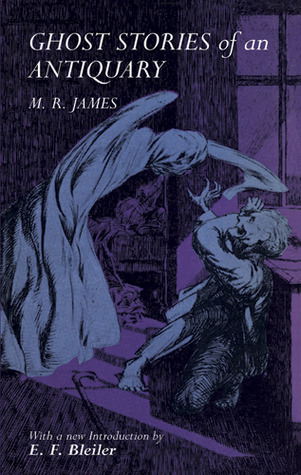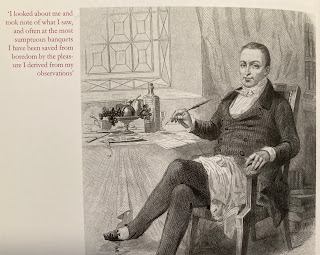How many of these (scroll down, but later) magical masterpieces of Swords and of Sorcery have you read?
E@L has x-ed (and reddened) those he has ploughed through (27 is it?), and y-ed (and purpled) those he owns but hasn’t got around to yet, not in this realm anyway. You’ll notice that he has mainly done the pre-1980 novels and stories as he eventually turned away from such childish fun and adventure, thanks to pressing concerns, and became a boring old man at the age of 23. Maybe he overdid the fantasy schtick at the time… Maybe the guilty indulgences stole his S&S soul?
Anyway, E@L temporarily embedded his blade into Moorcock back in 1977/78 at the urging of a fellow unworldly student radiographer (who went on study for a real job as a dentist while E@L hung around on the cusp of unemployment and failure).
They are so easy to read, these slim volumes, and so much fun, at least once you get a delightedly morbid taste for soul-stealing swords and demon infested nether-realms and lots of gruesome and bloody deaths, and those dead who don’t stay dead, but aren’t zombies either, thankfully, as that would be, like, hey, a cliché.
E@L means, hey, if you're 20 years old, working full-time, studying on the evenings, are newly married and with a young baby to focus on, why wouldn’t you retreat into a fantasy world at every opportunity?
You weren’t free to go surfing on a whim anymore, at the drop of an on-shore wind and the rise of a solid swell…
~~~~~~
[Many years later]
So bring on the black mists and the intrigue of the gods and elementals! And get out your guitar and play some Hawkwind songs (if you know any; E@L doesn’t!).
Let’s scour the realm of second-hand bookstores and of charity store like the Salvos or Vinnies, submit ourselves to the fates of heretical churches and their sly fêtes.
Let’s overflow E@L’s already well fucking overflowing bookshelves with the adolescent fantasy dreamworld of Michael Moorcock!
More Moorcock! More Moorcock!
If you’re wondering WTF; E@L is listening to the audiobooks of the Elric saga on his morning walks, and loving them, hence this post.
~~~~~~
E@L considers his poor — perennially on the knife-edge of failing -- performance in his initial career (radiographer, as mentioned) due to being distracted by these stories of eternal champions like Erokosë, Jerry Cornelius, Dorian Hawkmoon, Corum, and, of course, the pale, thin-blooded, reluctant, emperor, Elric of Melniboné (not MEL-kneebone but Mel-NIB-onay) with Stormbringer, his runesword, the stealer of souls!
It was not just the family stuff.

E@L means, hey, like, awesome, right?
~~~~~~~
E@L attributes his poor performance at high school to his being distracted by those surfing whims when it blew off-shore and tide was right and swells were a solid 4-6ft (or lower)…
~~~~~~~
E@L attributes his poor performance at surfing (he was OK, but not a star) to his mother being reluctant/unable to buy more and better surfboards for him. And for him being shit-scared of big waves. He could only afford a decent board when he left school and got a job, but see above re-marriage and progeny and work and study, and guess how well that worked out for him.
Not that he is bitter, twisted, and has his hand on the rune-encrusted obsidian pommel of his otherwordly blade…
No, his hand is on a double G&T.
~~~~~~~
- [ ] The Dreaming City (1961)
- [x] The Stealer of Souls (1963)
- [x] Stormbringer (1965, revised 1977)
- [x] Elric of Melniboné (1972)
- [x] Elric: The Sailor on the Seas of Fate (1976)
- [x] The Weird of the White Wolf (1977)
- [ ] The Vanishing Tower (1977)
- [ ] Elric at the End of Time (1981)
- [y] The Fortress of the Pearl (1989)
- [y] The Revenge of the Rose (1991)
- [y] The Citadel of Forgotten Myths (2022)
- [ ] The Dorian Hawkmoon series (1967–1975), including:
- [x] The Jewel in the Skull (1967)
- [x] The Mad God's Amulet (1968)
- [x] The Sword of the Dawn (1968)
- [x] The Runestaff (1969)
- [x] Count Brass (1973)
- [x] The Champion of Garathorm (1973)
- [x] The Quest for Tanelorn (1975)
- [ ] The Erekosë series (1970–1987), including:
- [x] The Eternal Champion (1970)
- [x] Phoenix in Obsidian, aka The Silver Warriors (1970)
- [ ] The Swords of Heaven, the Flowers of Hell (with Howard Chaykin) (1979) (graphic novel)
- [ ] The Dragon in the Sword (1987)
- [ ] The Corum series (1971–1974), including:
- [x] The Knight of the Swords (1971)
- [x] The Queen of the Swords (1971)
- [x] The King of the Swords (1971)
- [x] The Bull and the Spear (1973)
- [x] The Oak and the Ram (1973)
- [x] The Sword and the Stallion (1974)
- [x] Behold the Man (1969)
- [x] Breakfast in the Ruins (1972)
- [ ] The Time Dweller (1969)
- [ ] Sailing to Utopia, comprising:
- [ ] Flux (1962)
- [ ] The Ice Schooner (1966)
- [ ] The Black Corridor (1969)
- [ ] The Distant Suns (1975)
- [ ] The Wrecks of Time, aka The Rituals of Infinity (1967)
- [ ] The Sundered Worlds, aka The Blood Red Game (1965)
- [ ] The Fireclown, aka The Winds of Limbo (1965)
- [ ] The Twilight Man, aka The Shores of Death (1966)
- [ ] Kane of Old Mars (1998 compilation volume originally published as three books in 1965, 346pp)
- [ ] The Lost Canal (novelette) (2013)
- [ ] The Chinese Agent (1970)
- [ ] The Russian Intelligence (1980)
- [ ] Michael Moorcock's Multiverse (1999) (graphic novel)
- [ ] The Metatemporal Detective (2007) (collection)
- [ ] A Nomad of the Time Streams:
- [ ] The Warlord of the Air (1971)
- [ ] The Land Leviathan (1974)
- [ ] The Steel Tsar (1981)
- [ ] The Dancers at the End of Time sequence (1972–76):
- [y] An Alien Heat (1972)
- [y] The Hollow Lands (1974)
- [ ] The End of All Songs (1976)
- [ ] Legends from the End of Time (1976)
- [ ] The Transformation of Miss Mavis Ming, aka A Messiah at the End of Time (1977)
- [ ] Gloriana (1978)
- [ ] My Experiences in the Third World War (1980)
- [ ] The Opium General and Other Stories (1984)
- [y] Mother London (1988)
- [ ] Casablanca (1989) – short stories
- [y] King of the City (2000)
- [ ] London Bone (2001) – short stories
- [ ] Kaboul (first published in French) (2018
- [ ] The Jerry Cornelius quartet of novels and shorter fiction:
- [x] The Final Programme (1969)
- [x] A Cure for Cancer (1971)
- [x] The English Assassin (1972)
- [x] The Condition of Muzak (1977)
- [ ] The Cornelius Quartet (1977 compilation volume, 974pp)
- [ ] The Adventures of Una Persson and Catherine Cornelius in the 20th Century (1976)
- [ ] The Lives and Times of Jerry Cornelius (1976)
- [ ] The Great Rock 'n' Roll Swindle, aka Gold Diggers of 1977 (1980)
- [ ] The Entropy Tango (1981)
- [ ] The Alchemist's Question (1984)
- [ ] A Cornelius Calendar (1993 compilation volume, 554pp)
- [ ] The New Nature of the Catastrophe (1993 anthology collecting Jerry Cornelius stories by Moorcock and others, edited by Moorcock and Langdon Jones, 448pp)
- [ ] Firing the Cathedral (novella) (2002)
- [ ] Phase 1:A Jerry Cornelius Story (novella) (2008)
- [ ] Modem Times 2.0 (novella) (2011)
- [ ] Pegging the President (novella) (2018)
- [ ] The Fracking Factory (novella) (2018)
- [ ] The Wokingham Agreement (novelette) (2022)
- [ ] The von Bek sequence:
- [ ] The War Hound and the World's Pain (1981)
- [ ] The Brothel in Rosenstrasse (1982)
- [ ] The City in the Autumn Stars (1986)
- [ ] The Pyat Quartet:
- [ ] Byzantium Endures (1981)
- [ ] The Laughter of Carthage (1984)
- [ ] Jerusalem Commands (1992)
- [ ] The Vengeance of Rome (2006)
- [ ] The Second Ether sequence:
- [ ] Blood: A Southern Fantasy (1994)
- [ ] Fabulous Harbours (1995)
- [ ] The War Amongst The Angels (1996)
- [ ] The Elric/Oona Von Bek sequence:
- [ ] The Dreamthief's Daughter (2001)
- [ ] The Skrayling Tree (2003)
- [ ] The White Wolf's Son (2005)
- [ ] Doctor Who:
- [ ] The Coming of the Terraphiles (2010)
- [ ] The Sanctuary of the White Friars
- [ ] The Whispering Swarm (2015)
- [ ] The Woods of Arcady (2023)
- [ ] The Wounds of Albion (TBC)
~~~~~~~
Phew! Busy guy that Michael Moorcock!
~~~~~~~
Sigh.
E@L considers his poor history with girlfriends (only JUST plural) and wife (singular) to being obsessed with surfing. And himself. And being obsessed by obscure (to many) books, and to only ever learning four songs on his guitar and playing them on heavy repeat for 50 years yet never remembering the chord changes correctly.
And just being a selfish, ignorant dickhead in relationships, with zip EQ (see previous paragraph for pathetic excuses), and so here he is at 67, still alive despite the best effort of the invidious fates, the anger of the chaotic gods and spirits on this realm and others, only by having used the Mechanical Magic of Modern Medicine to confound his destiny and his malicious DNA, sitting alone on his balcony with a double G&T and an iPad, a thorax marred with multiple scars, a gurgling colostomy bag, and a list of the millions of books he hasn’t read, not to mention the one he hasn’t written.
Pleasant enough, right?
~~~~~~~
But, oh, this post has gone off the rails suddenly, hasn't it?
But like, hey! What more could one expect from that plate of cheese and crackers, that (second) double G&T, and
E@L



















































